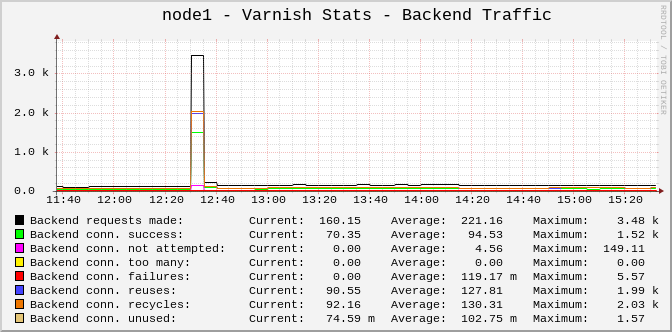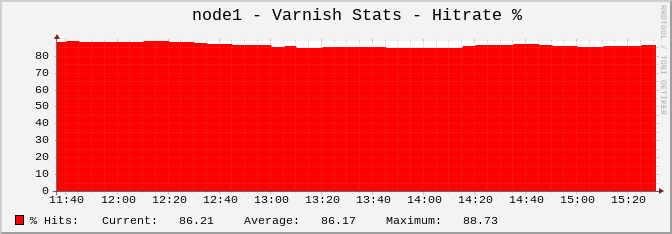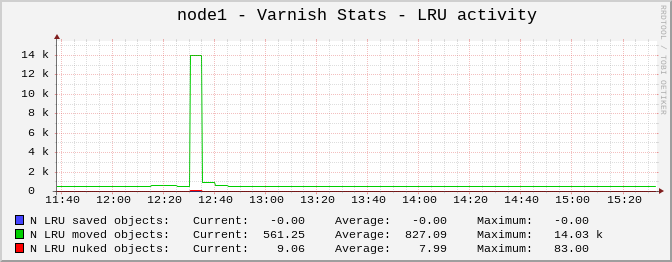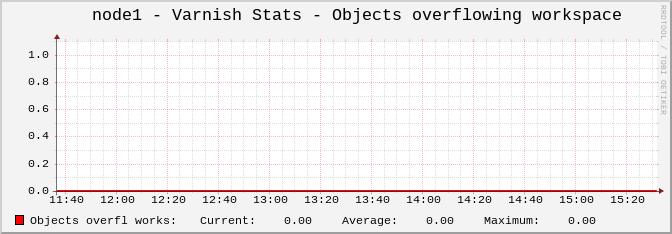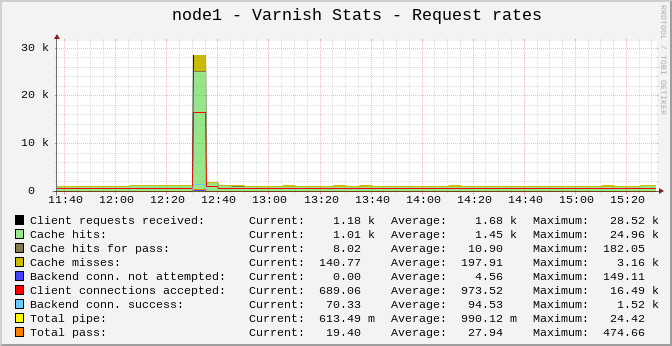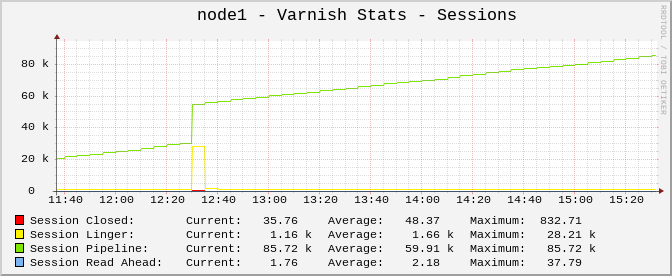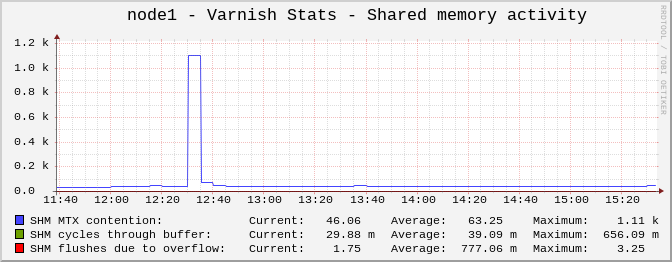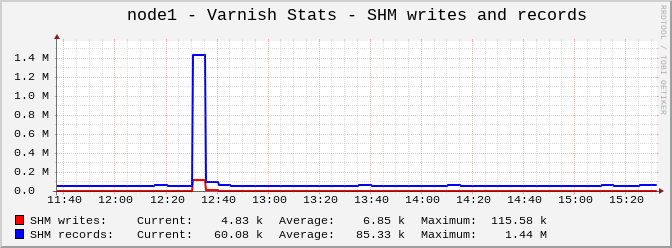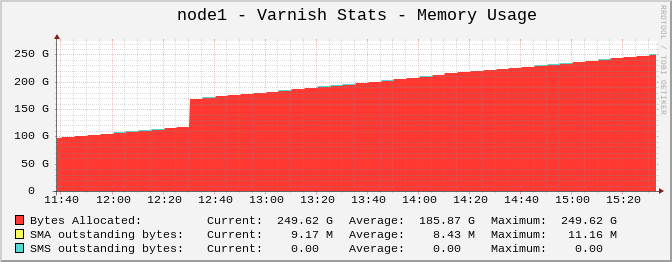Uses advanced template from: http://forums.cacti.net/viewtopic.php?p=182152
Combines script to pull data via Varnish admin port from http://forums.cacti.net/viewtopic.php?t=31260
- Import
cacti_host_template_varnish.xmlto Cacti - Copy
get_varnish_stats.pytoscripts - Make the varnishstat available to your Cacti machine (read below)
IMPORTANT: You need to recompile spine with ./configure --with-results-buffer=2048.
For Varnish 2, you can use Varnish management service, configure it to be accessible. For 2.0 make sure you lock down appropriately with iptables or similar, because there is no authentication for this interface, for 2.1 the authentication is (currently) not implemented by this template poller.
Varnish 3 does not have stats command anymore in management interface. You can setup inetd daemon like xinetd to serve the varnishstat command remotely (again be sure to restrict access to prevent any unauthorized access):
service varnishstat
{
socket_type = stream
wait = no
user = nobody
server = /usr/bin/varnishstat
server_args = -1
only_from = 10.10.0.7
log_on_success = HOST
}
Backend Traffic
Critbit data
Data structure sizes
ESI
Hitrate %
Hit rates
LRU activity
Memory allocation requests
Number of objects
Object expunging
Objects delivered with sendfile vs write
Objects overflowing workspace
Objects per objecthead
Request rates
Session herd
Sessions
Shared memory activity
SHM writes and records
Thread status
Memory Usage
Transfer rates
Uptime
VCL and purges
Elan Ruusamäe [email protected]
